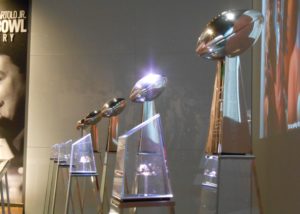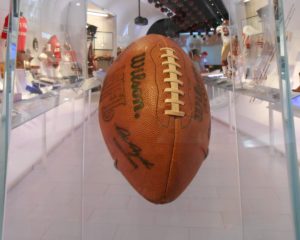 In the wake of the New England Patriots’ recent come-from-behind victory over the Atlanta Falcons in Super Bowl LI, many commentators have seen the game correctly as a final exclamation point for the legacies of quarterback Tom Brady, coach Bill Belichick, and the current New England Patriots sports dynasty: seven championships, two additional Super Bowl appearances, and sixteen straight seasons (and counting) as a serious contender. No other franchise in NFL history has equaled this record—not the 1960s-80s Dallas Cowboys under Tom Landry, the 1970s Pittsburgh Steelers under Chuck Noll, nor the 1980s-90s San Francisco 49ers under Bill Walsh and his successors. The accomplishment is all the more impressive when one considers that the previous dynasties existed under much more favorable circumstances, when neither free agency nor salary caps posed any restraints on their ability to acquire and retain the players necessary to remain competitive. Walsh admitted as much in David Halberstam’s biography of Belichick, marveling at Belichick’s ability to build and maintain the Patriots without having the unlimited bank account that Walsh enjoyed when Eddie D. was signing the checks. It may be easy for fans outside of Boston who aren’t Trump supporters to hate the Patriots, but after this game, one cannot begrudge them their unprecedented success.
In the wake of the New England Patriots’ recent come-from-behind victory over the Atlanta Falcons in Super Bowl LI, many commentators have seen the game correctly as a final exclamation point for the legacies of quarterback Tom Brady, coach Bill Belichick, and the current New England Patriots sports dynasty: seven championships, two additional Super Bowl appearances, and sixteen straight seasons (and counting) as a serious contender. No other franchise in NFL history has equaled this record—not the 1960s-80s Dallas Cowboys under Tom Landry, the 1970s Pittsburgh Steelers under Chuck Noll, nor the 1980s-90s San Francisco 49ers under Bill Walsh and his successors. The accomplishment is all the more impressive when one considers that the previous dynasties existed under much more favorable circumstances, when neither free agency nor salary caps posed any restraints on their ability to acquire and retain the players necessary to remain competitive. Walsh admitted as much in David Halberstam’s biography of Belichick, marveling at Belichick’s ability to build and maintain the Patriots without having the unlimited bank account that Walsh enjoyed when Eddie D. was signing the checks. It may be easy for fans outside of Boston who aren’t Trump supporters to hate the Patriots, but after this game, one cannot begrudge them their unprecedented success.

Of course, games can assume more meaning over time in the memory of those who watched them. If they replay scenes from Super Bowl LI more than thirty years after the fact, as the NFL still does with Clark’s catch, the verdict might then be open to question.


